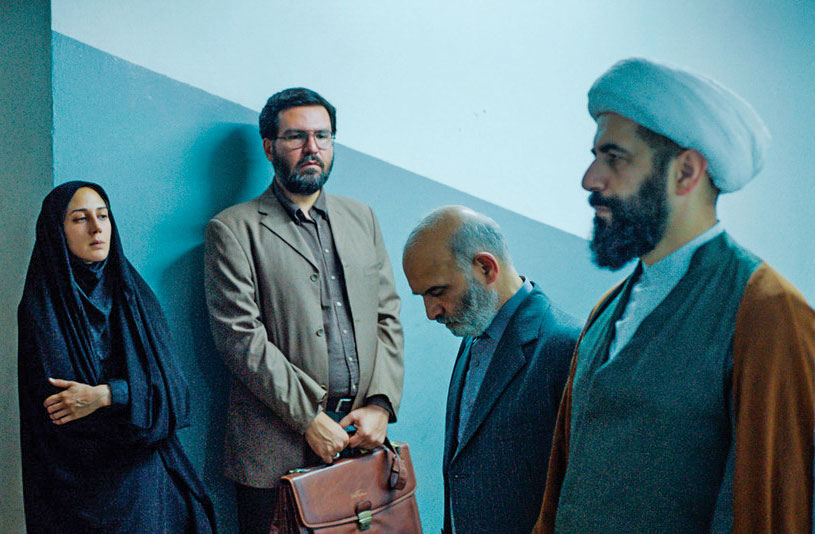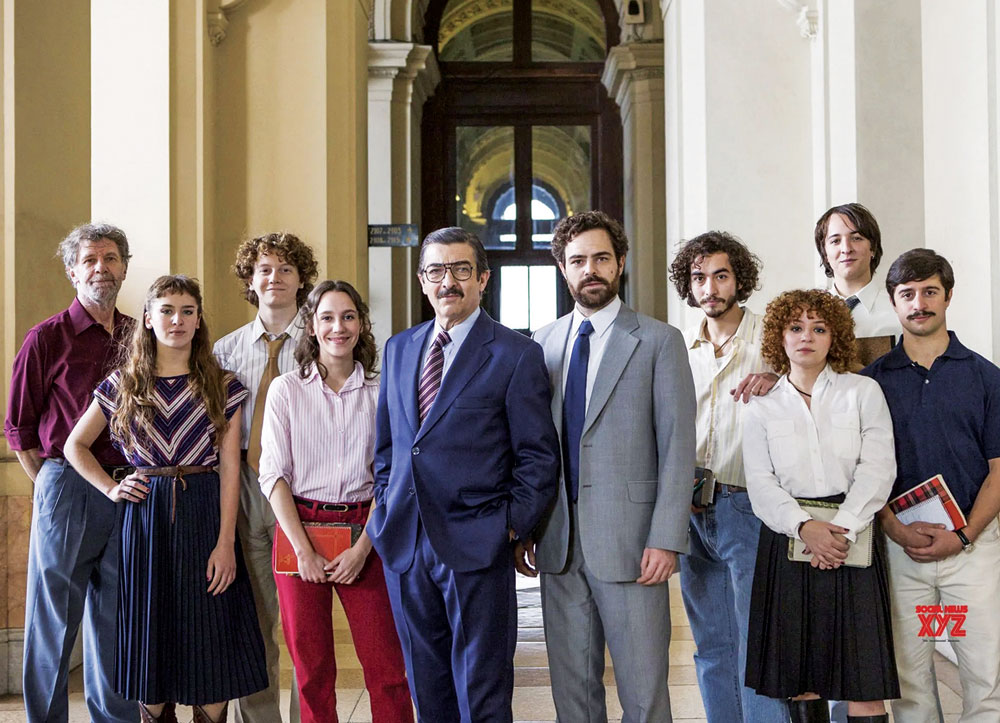
If you didn’t make it to the Denver Film Festival, you missed a bevy of wonderful films from all around the world. I previewed several of them in last month’s column, and you can look for all of those to be streaming soon. I give a longer review of one of those films this week as well as another international feature that surely will be nominated for an Oscar. You will hear plenty about all of the best American films in the coming months, so I continue with my journey around the world. Now, please enjoy these wonderful works of art.
Holy Spider (Denmark—2022)
I previewed this film in last month’s column with the caveat that I hadn’t seen it yet. Three things happened since then: I have seen it, it is playing at the Sie Film Center as of this writing, and finally, it is impactful and devastating. It is one of the favorites for Best Foreign Language Film at the Oscars, and deservedly so. The Danish production tells the true story of an Iranian serial killer, known as the “Holy Spider,” who killed sex workers in the holy city of Mashhad from 2000–2001. He wasn’t intently pursued while he was killing, and once he was caught, many wanted him freed/exonerated. The story follows a journalist who put herself directly in the path of the killer so that he may be caught and tried.

Holy Spider
The film itself is gripping, stylized, and tense. Zar Amir Ebrahimi as Rahimi (the journalist) gives a stunning performance as the one person who seems intent on catching the killer. Most of the authorities look the other way or wallow in their corruption. Rahimi won the Best Actress award at Cannes for her performance, and quite deservedly. Her intensity is the fulcrum of the film, and her fight against a lazy and indifferent patriarchy allows us to identify with her plight. Once she is put in danger, we sit up straight. She should be nominated for an Oscar in the Best Actress category in the coming months. That certainly will be controversial, as the film has been in various circles.
Iran condemned the film, condemned Cannes, and warned that the film was an insult to them and the Muslim religion. Their warnings are very The Satanic Verses-like, and the main reason is that the film hit a nerve. Many nerves, actually. Once we get passed the identity of the killer, once we get passed the story and style of the film, and once we get passed the excellent performances, the film portrays a society that is disturbing, misogynistic, and venal. The ending, and what it says about the future, is bone-chillingly frightening. It might be easy to sit back and judge the events from the perspective of a western culture, but that is folly. This film tells us more about ourselves and our culture than it does about Iran or any other culture. When hate and prejudice and violence rise to the surface and become normalized, well, you can extrapolate from there. This is a must-see with a lot to say.
Now playing at the Sie Film Center; streaming soon.
You will enjoy this film if you liked I’m a Killer, Natural Born Killers, and/or The Separation.
Argentina, 1985 (Argentina—2022)
The ugly military rule of South American countries has been a topic of excellent cinema for a long time: Kamchatka, Chronicle of an Escape, and The Clan are just a few that focus on the Argentine Dirty Wars of 1974–1983. The newest entry, Argentina, 1985 tells the story of the legal team that secured the first prosecutions of anyone involved in the atrocities. It is a truncated and brisk telling of the story, but it is important, informative, and ultimately uplifting. The film is even able to find lightness, love, and honor in a soup of dismay. This is all sorely needed in today’s world.

Argentina, 1985
The story and the acting are the most prominent aspects of the film and what propels it. We follow Chief Prosecutor Julio César Strassera (Ricardo Darín) and Assistant Luis Moreno Ocampo (Peter Lanzani) as they navigate the “The Trial of the Juntas,” and Darín dominates the film as the quirky, unsure, and ultimately honorable hero of the story. Darín is one of the world’s acting gems, and a huge star in Argentina. Americans may recognize him from the Oscar-winning The Secret in Their Eyes (2009) and now can appreciate his acting chops up close in this film. It is worth the viewing just for his performance, but there is a lot more to the entire project.
The period settings, props, and costumes lend ethos to the production, and the editing is intricate and expressive. There is a lot of information to process, and the film handles it well. The performances beyond Darín are also excellent, with Alejandra Flechner as Silvia Strassera and Santiago Armas Estevarena as their son Javier adding humor and levity to the very troubling story and events. Director Santiago Mitre handles all of this expertly, and the result is a solid production in all areas.
You will like this film if you enjoyed the aforementioned films, as well as The Revolution Will Not Be Televised, No, and/or The Dancer Upstairs.
Available on Amazon Prime.
Finally, look for one addition to this column in the coming months—book reviews. I intend to review books that you may not hear about in larger media, and I will strive to do the same thing with books that I do with film: turn you on to something new. I will cover smaller books, local authors, and more niche topics. I start with one recommendation for the holidays: The Water Knife, by Paolo Bacigalupi. Paolo is a Colorado author and the book takes aim at a near future where water is the stuff of militias and wars and strife. It is a future that is not far off. A great read and a great present for the holidays.
Vincent Piturro, Ph.D. is a Film and Media Studies Professor at MSU Denver. He can be reached at vpiturro@msudenver.edu or follow him on Twitter. For more reviews, search The Indie Prof at FrontPorchNE.com.


0 Comments